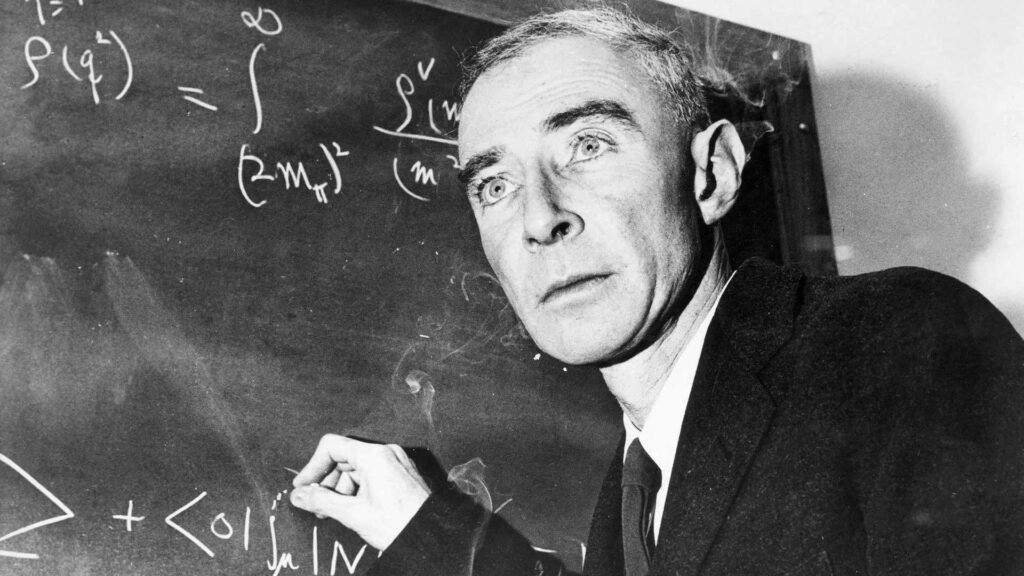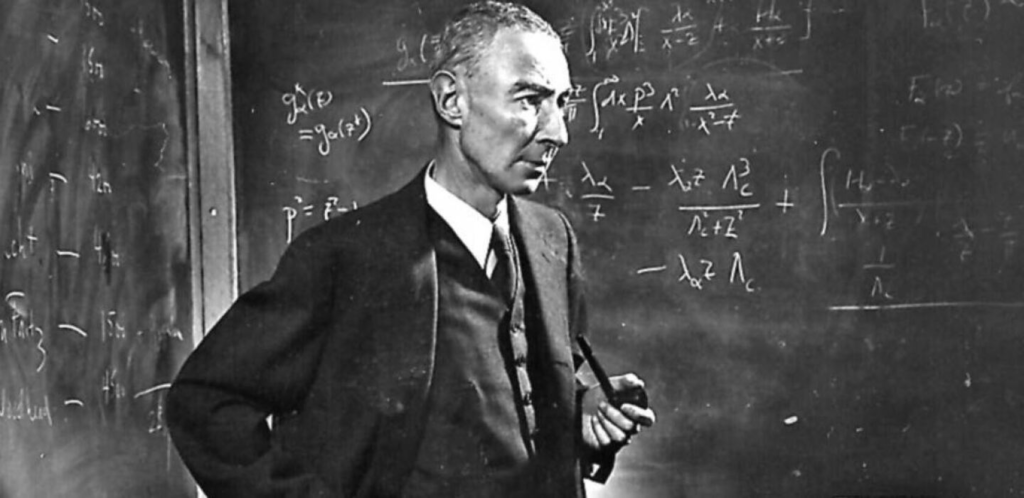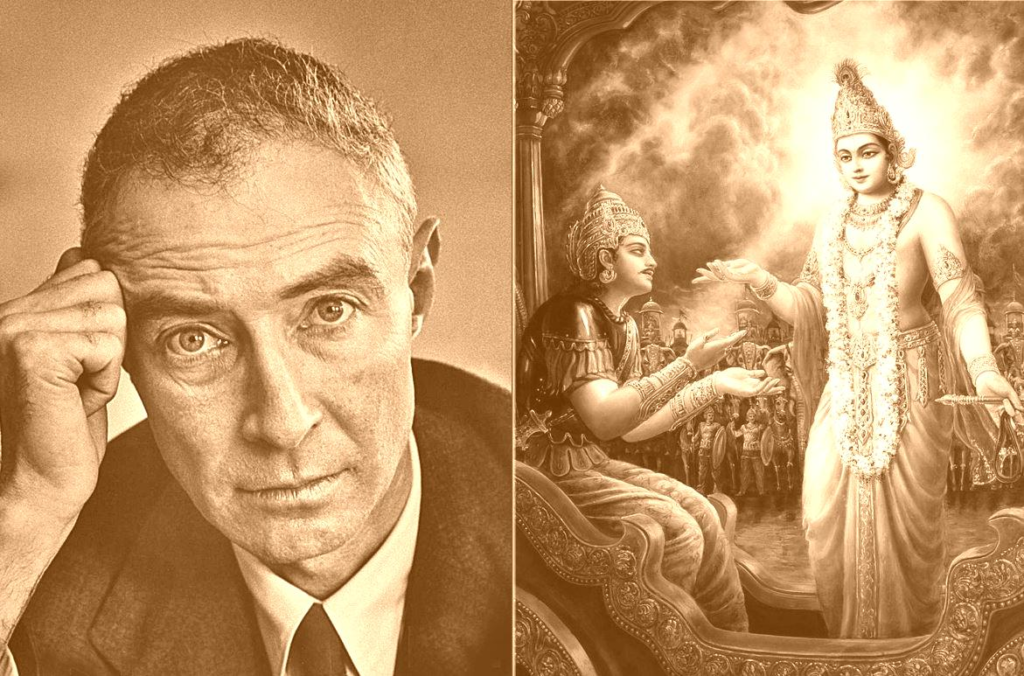How ‘Oppenheimer’ becomes the reason for changing the World?

J. Robert Oppenheimer (1904-1967) was an American theoretical physicist. He is often known as the “father of the atomic bomb.” During the Manhattan Project, Oppenheimer was director of the Los Alamos Laboratory and responsible for the research and design of an atomic bomb. The deployment of this bomb on Hiroshima and Nagasaki ultimately led to the conclusion of World War II.
Oppenheimer was born on April 22, 1904, in New York City to German Jewish immigrants, Oppenheimer demonstrated his intellectual prowess from an early age. His family was part of the Ethical Culture Society, an outgrowth of American Reform Judaism founded and led at the time by Dr Felix Adler. Oppenheimer’s early fascination with minerals even led him to deliver a lecture at the New York Mineralogical Club at the tender age of 12.
After graduating from Harvard University with a chemistry major, Oppenheimer discovered his true passion lay in physics. He pursued graduate work at Cavendish Laboratory in Cambridge, England, under J.J.Thomson, the Nobel laureate who discovered the electron. However, Oppenheimer’s path took an unexpected turn. He delved into theoretical physics during his research days and travelled to Germany to study under Max Born at the University of Göttingen.
Why Oppenheimer was the only cause of changing the World?

As World War II erupted and the United States became involved, Oppenheimer was appointed director of the Los Alamos Laboratory in New Mexico. This marked the beginning of the Manhattan Project, a top-secret US Army experiment aimed at developing an atomic bomb. However, the project was far from simple. In 1939, Albert Einstein and other prominent physicists alerted the U.S. government to the possibility of creating an atomic bomb.
Oppenheimer assembled a team of scientists, engineers, and technicians to collaborate on various aspects of bomb design and development. He oversaw the research and development efforts to produce sufficient enriched uranium and plutonium, as well as to devise methods for isotope separation and create a sustainable chain reaction, all crucial steps toward harnessing the immense power of nuclear fission.
Los Alamos, New Mexico, became the primary research and development centre, with Oak Ridge, Tennessee, focusing on uranium enrichment and Hanford, Washington, dedicated to plutonium production. The culmination of Oppenheimer’s endeavours occurred in July 1945, when the first atomic bomb, codenamed “Trinity,” was successfully detonated in the New Mexico desert. This test confirmed the bomb’s viability and marked a significant milestone in human history.
How Oppenheimer was influenced by the Bhagavad Gita?

Oppenheimer, the physicist, was strongly influenced by the teachings of the Bhagavad Gita and reportedly kept a copy of it near his bedside. In fact, in 1933 he even learned Sanskrit so that he could read the book in its original text. The physicist called the Gita “the most beautiful philosophical song existing in any known tongue.” He listed the Bhagavad Gita among the ten books that most shaped his life.
James A Hijiya, Professor of History, in his book ‘The Gita of J. Robert Oppenheimer’ likens Oppenheimer to Arjuna in the Mahabharata. He wrote in the book, “Krishna’s message to Arjuna is clear: you must fight. To Oppenheimer, the message would have seemed equally clear. If it was proper for Arjuna to kill his friends and relatives in a squabble over the inheritance of a kingdom, then how could it be wrong for Oppenheimer to build a weapon to kill Germans and Japanese whose governments were trying to conquer the world.”
Oppenheimer knew that they needed the atomic bomb to defeat the Nazis, but he also realised that it was a dangerous weapon that could destroy humanity. When the first successful test of the atomic bomb – called the Trinity Test (July 16, 1945) – happened in Mexico, Oppenheimer quoted the Bhagavad Gita.
“I remembered the line from the Hindu scripture, the Bhagavad-Gita. Vishnu is trying to persuade the Prince that he should do his duty and to impress him takes on his multi-armed form and says, now, I am become Death, the destroyer of worlds.”
– Oppenheimer in a television interview in 1965, years after his creation ended the second World War.
Why do we need a film about Oppenheimer?
Oppenheimer’s innovations forever changed the world, leading to a race in developing nuclear weapons and an arsenal more powerful than ever before. Oppenheimer played a central role in one of the most significant scientific and military undertakings of the 20th century and a film would preserve his historical significance that spans beyond the 20th century.
Christopher Nolan, acclaimed for his films exploring themes of space, time, and dream worlds, is set to release his directorial venture, “Oppenheimer,” with Cillian Murphy in the lead role as the father of the atomic bomb. The film arrives at a time when nuclear tensions loom worldwide.
A film on Oppenheimer’s life and work would not only preserve and convey his historical importance but also delve into ethical questions surrounding responsible scientific knowledge and the consequences of 21st-century technological advancements.
Beyond its historical significance, such a film could inspire young minds to pursue science, technology, engineering, and mathematics fields. Oppenheimer’s story serves as a testament to the profound impact that scientific curiosity and dedication can have on shaping the course of human history.
Write with us✍?
Greetings to Everyone from TeamUgtWorld! Anybody who wants to write whatever his/her Heart wants to. They can now publish their content with us on our platform @Ugtworld. For more information click on the following link…


